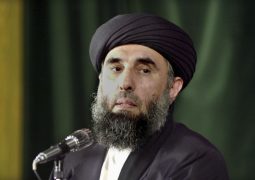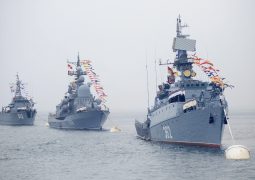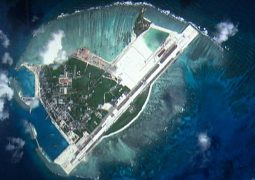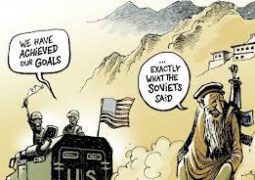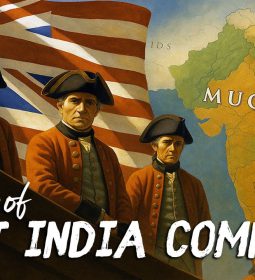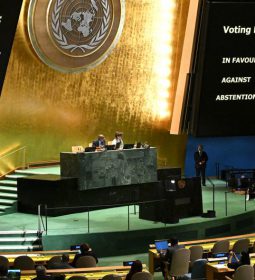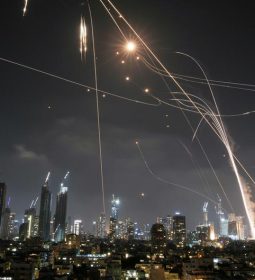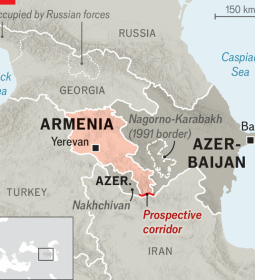Trump: War would mean ‘end of Iran’
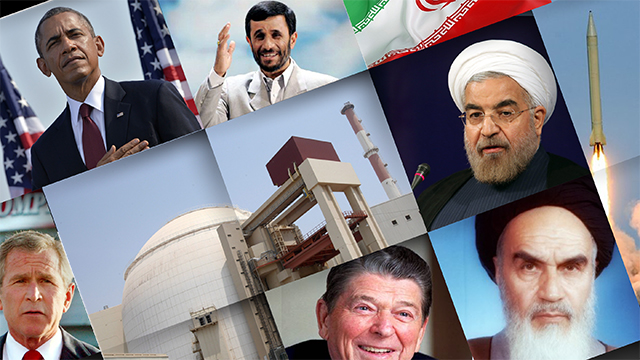
Trump threatens Iran’s ‘end’ if it seeks fight with the US
Marwan Bishara
US president’s direct threat comes after Tehran says it opposes war and no country has ‘illusion’ it can confront it.
![Trump threatens Iran's 'end' if it seeks fight with the US The White House has sent mixed signals over its stance against Iran [Alex Brandon/AP Photo]](https://www.aljazeera.com/mritems/imagecache/mbdxxlarge/mritems/Images/2019/5/20/e1eeaf8157c442b3b31e00da2700cd28_18.jpg)
Just days after saying he was prepared for talks, United States President Donald Trump has issued a direct threat to Iran, suggesting that the Islamic republic will be destroyed if it attacks his country’s interests.
“If Iran wants to fight, that will be the official end of Iran. Never threaten the United States again,” Trump wrote on Twitter on Sunday. He did not clarify what threats he meant.
The confrontational post follows last week’s attacks on Saudi oil assets and the firing of a rocket on Sunday into the heavily fortified “Green Zone” in Iraq’s capital, Baghdad, an area housing many government buildings and embassies.
The Iraqi military said there were no casualties in the rocket attack. There has been no claim of responsibility.
Amid escalating tension with Iran, Washington earlier this month dispatched to the region an aircraft carrier and B-52 bombers, as well as an amphibious assault ship and a Patriot missile battery.
On Wednesday, it ordered the evacuation of non-essential personnel from the US embassy in Baghdad embassy and the Erbil consulate in northern Iraq, citing “imminent” threats from Iranian-backed Iraqi armed groups. It did not disclose any details, and its account has been met with widespread scepticism outside the US.
But in recent days, the White House has sent mixed signals over its stance against Iran, amid multiple US media reports of infighting in Trump’s cabinet.
John Bolton, Trump’s long-hawkish national security adviser, is reportedly pushing a hard line on Iran, but others in the administration are resisting. Trump himself said recently that he has to “temper” Bolton.
And when he was asked on Thursday if Washington was going to war with Tehran, Trump replied, “I hope not”. That comment came a day after he expressed a desire for dialogue, tweeting: “I’m sure that Iran will want to talk soon.”
“It really is becoming clear that this administration is sending mixed messages when it comes to Iran,” Al Jazeera’s Patty Culhane, reporting from Washington, DC, said.
“So the big question is why did he send that confrontational tweet? Is it because he received some sort of classified briefing or is it because of something he watched on television? We don’t know.”
‘Contradictory and schizophrenic’
Trita Parsi, a professor of Middle East politics at Georgetown University, described Trump’s threat as “extremely dangerous”.
“This is genocidal,” he told Al Jazeera from Reston, Virginia. “This is absolutely not something that any leader of a country should do, but it is also somewhat contradictory and schizophrenic,” he added.
“If we were to try and make sense of it, if there actually is a logic behind all of this, then my guess would be that earlier on Trump was led to believe – probably by people like [Israeli Prime Minister Benjamin] Netanyahu] and Bolton that Iran is an easy target, that they are about to crumble and that if you just ratchet things up the Iranians are going to back off,” continued Parsi.
“Then the intelligence came which showed that as the Iranians were starting to perceive an American threat they were making themselves ready to retaliate and to defend themselves. And it appears as if that actually spooked Trump, because he did suddenly realise that actually an attack on Iran would lead to a larger war and he is clever enough to understand that a larger war is not in his interest, and … he started saying things like he doesn’t want to have a war.
“But every once in a while his impulses get the better of him and that’s when he goes on Twitter and says things that are just fundamentally genocidal.”
‘There will not be a war’
Iran-US relations hit a new low last year as Trump pulled the US out of a multinational 2015 nuclear deal and reimposed unilateral sanctions that had been lifted in exchange for Tehran scaling back its nuclear programme.
Last month, Washington also designated Iran’s elite Islamic Revolutionary Guard Corps (IRGC) a “terrorist” entity. Tehran responded by declaring US Centcom a “terror” organisation.
On Saturday, Mohammad Javad Zarif, Iran’s foreign minister, downplayed the prospect of a new war in the region, saying Tehran opposed it and no party was under the “illusion” the Islamic republic could be confronted.
“We are certain … there will not be a war since neither we want a war nor does anyone have the illusion they can confront Iran in the region,” Zarif told state-run news agency IRNA at the end of a visit to China.
Meanwhile, Saudi Arabia‘s Minister of State for Foreign Affairs Adel al-Jubeir said on Sunday the kingdom wanted to avert war in the region but stood ready to respond with “all strength and determination” after last week’s attacks on Saudi oil assets.
Saudi Arabia has accused its regional rival, Iran, of ordering Tuesday’s drone attacks on two oil-pumping stations in the kingdom, claimed by Yemen’s Houthi group.
The attack came two days after four vessels, including two Saudi oil tankers, were “sabotaged” off the coast of the United Arab Emirates (UAE). The UAE has not blamed anyone, pending an investigation, and Iran has denied any involvement.
“The Kingdom of Saudi Arabia does not want a war in the region nor does it seek that,” al-Jubeir told a news conference on Sunday.
“It will do what it can to prevent this war and at the same time it reaffirms that in the event the other side chooses war, the kingdom will respond with all force and determination, and it will defend itself and its interests.
“We want peace and stability in the region but we will not sit on our hands in light of the continuing Iranian attack,” al-Jubeir said. “The ball is in Iran’s court and it is up to Iran to determine what its fate will be.”
A senior Iranian military commander was similarly quoted as saying his country is not looking for war, in comments published in Iranian media on Sunday.
“We are not pursuing war but we are also not afraid of war,” Major General Hossein Salami was cited as saying, by the semi-official news agency Tasnim.
The remarks came as Saudi Arabia’s King Salman invited Gulf and Arab leaders to convene emergency summits in Mecca on May 30.
Saudi Crown Prince Mohammed bin Salman discussed regional developments, including efforts to strengthen security and stability, in a phone call with US Secretary of State Mike Pompeo, the Saudi Media Ministry tweeted on Sunday.
- Previous EU firms ‘caught in crossfire’ of US-China trade war
- Next Palestine peace plan to be discussed in Bahrain





